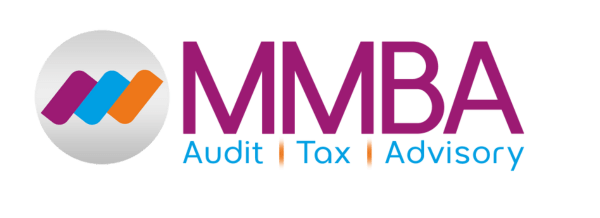
A Comprehensive Overview of Services Offered by Accountant for Small Business
Home /Services offered by Accountant
Recent Blog
Subscribe to Newsletter
A professional accountant plays an important role in the success and sustainability of a small business. An accountant can help a small business or startup or tech and IT startup by managing the official aspects of a small business. Moreover, they provide insights into financial health by tracking income and expenses, create budgets, and by managing the cash flow. Accountants also make sure that small businesses comply with tax requirements, file accurate tax returns on time, and take advantage of minimum deductions and credits.
Many UK business owners manage their own accounting affairs when they begin, but over time, the management of your accounts becomes more complicated, and so you need to hire an accountant. You might also feel that cloud software is sufficient whereas accountants bring much more than the calculations. Some accounting softwares may streamline some tasks, but accountants provide expert guidance. Let’s go into the details:
Table of Contents
Why Your Small Business Needs an Accountant?
An accountant not only makes sure that a business complies with the internal revenue service requirements but also discovers ways for the company to decrease its expenses. In addition, they can help in financial decisions since you will be given time to concentrate on the growth of your business. Also, while cloud accounting is capable of automating petty jobs, it tends to provide a company owner with limited options compared to the expertise offered by a professional accountant.
Benefits of Effective Accounting by an Experienced Accountant

These are many benefits of effective accounting, specially for a small business. These benefits are accurate financial records, informed decision making, compliance with standards, audit preparedness, improved financial management (like better cash flow management), credibility and access to finance, and transparent communication etc.
Time Savings and Accounting Systems/ Software
Professional accountants implement accounting systems, streamline financial process, provide training and support, integrate accounting software with other software like CRM, provide real-time financial insights, generate automated reports, and work on compliance and security.
Contact our experts today to get more knowledge about
UK Salary Sacrifice!
Call us Today
Startup Accountants and Tax Compliance
They assist small businesses in navigating tax-related matters by tax structure selection, tax registration and filings, tax deductions and credits, compliance with tax laws for auditing, record keeping and documentation, quarterly and annual tax planning, tax audits and compliance reviews.
Financial Analysis and Reporting
A professional accountant contributes to financial analysis and reporting by providing financial data analysis, ratio analysis, trend analysis, budget vs. actual analysis, key performance indicators (KPIs), customised financial reporting, forecasting and projections, interpretation and recommendations, and presentation to stakeholders.
Cash Flow Management
A professional accountant helps a small business in its cash flow management by:
- Monitoring cash flow regularly
- Forecasting cash needs
- Managing receivable and payables
- Controlling expenses
- Building cash reserves
- Considering financing options
- Leveraging technology
Periodic assessments
Small Business’s Financial Risk Management
While salary sacrifice arrangements offer significant advantages, there are a few critical points to consider:
- Minimum Wage Compliance: Deductions must not reduce an employee’s salary below the national minimum wage.
- Tax Implications: Not all non-cash benefits are exempt from tax and National Insurance. Always verify the tax treatment of chosen benefits.
- Impact on Earnings-Related Benefits: Sacrificing salary may affect entitlement to statutory benefits like maternity pay, sick pay, or redundancy pay.
- Cap on Deductions: Employers must ensure salary sacrifice deductions align with government regulations on maximum contributions.
Audits, Examination, and Compliance
Audits, Examination, and compliance are essential components for maintaining financial health and accuracy, building credibility, and ensuring regulatory adherence for small businesses. Professional accountants play a crucial role in managing audits and compliance requirements.
Tax, Cost and Bookkeeping – Expense Management:
Accountants for startup or professional accountants play a crucial role in handling tax, cost management, and efficient bookkeeping for small businesses, thus provide essential financial support and expertise in this area, which contributes to expense management.
Role of Accountant
Here’s how an accountant can help
Bookkeeping
Bookkeeping is a fundamental part of an accountant’s role. Accountants make sure that all financial transactions are accurately recorded and organised.
Maintain Accurate Financial Records
They maintain all your records with HMRC and Companies House.
Plan for the Future
They also provide support for the preparation of business strategies, control of cash flows, and compliance with financial requirements to keep your business in good condition.
Structure Your Business Correctly
They make sure that you can get a legal structure that will best suit your business needs and positively impact your financials.
Also, they can help recommend a good cloud accounting software suitable for your needs so you don’t waste time and get accurate information.
Increasing Tax Efficiency
A good accountant also provides tax investigation insurance, to shield you against any HMRC inquiries. In case of being audited, this insurance helps to keep costs manageable so that you can work on enhancing the business.
Accountants can guide you in withdrawing money from your business while making it tax efficient, they ensure your personal finances and manage your business finances effectively. They also offer advice on both short- and long-term tax savings.
An Accountant Makes Government Dealing Easier
It can be a challenging thing to cope with government paperwork when you run your own business. This is why the need of hiring an accountant arises.
It can be a challenging thing to cope with government paperwork when you run your own business. This is why the need of hiring an accountant arises.
When Should You Consider Hiring an Accountant?
Let’s explore some of the circumstances where you might need an accountant for your small business.
Need Advice While Writing a Business Plan, Buy a Business or Sell Your Business
An accountant will help you to use accounting software to add financial projections and other reports for writing your business plan. This way you can create a business plan that’s more realistic, professional and more likely to succeed.
Managing Your Business Finances — An Accountant Can Help
It is no secret that every small business owner has to understand that financial management is one of the keys to business success.
Startup Accountant and Expert Financial Advice for Business Growth
A professional startup accountant offers comprehensive guidance and financial expertise crucial for setting a strong financial foundation, navigating the complexities of financial management, and making informed decisions during the crucial stages of a small business’s growth.
Tips for Choosing the Right Accountant for Your Business
Choosing the right accountant for your small business is the key to the success of your business in future. The selection of an accountant should therefore be made carefully.
Keep in mind the following tips before hiring an accountant.
Specialist Knowledge
He should have an adequate knowledge like if you are a sole trader/self employed or running a business.
Digital Tools
A professional chartered accountant should also have knowledge of Cloud accounting software to help you automate your workflow to get real-time information.
Offer Additional Services
He can offer you business consultation, business planning, and even the option to offer tax investigation insurance.
MMBA’s Accounting and Auditing Services for Small Businesses
An accountant contributes significantly to a startup’s strategic decision-making process by offering support and valuable financial insights. The accountants provides strategic decision support by financial analysis and reporting, asset management and forecasting, scenario planning, capital development decisions, cash flow management, tax planning strategies, key performance indicators (KPIs), and technology integration recommendations.
MMBA’s Accountants for Small Business – Analysis, Advice, and Services
MMBA’s accounting and auditing services for small businesses are among the top-tier in the UK’s market. We provide premier accounting and auditing services tailored specifically for small businesses. Our dedicated professional accountants’ teams make sure that you get comprehensive solutions for your small business’s success and growth.
Conclusion
Hiring an accountant for your small business is an investment in your company’s success. From offering general business advice to making sure tax efficiency and providing expert help with your financial records, accountants provide invaluable general support that can help your business thrive.
Overall, the role of a professional accountants for small business is very important. It extends far beyond number-crunching, because they serve as financial advisors, compliance experts, and strategists and contribute significantly to the stability, growth, financial health and well-being of the business. Professional Accountants provide expertise and guidance essential for navigating the complex financial landscape and positioning the business for success in the competitive market.
FAQs
Is hiring accountants worth the investment for small businesses?
Yes, hiring accountants for small businesses is often a valuable investment because they contribute to financial health and stability, growth strategies, compliance, and overall business success; which outweighs the cost by providing essential expertise and support.
Are accountants only for large businesses?
Accountants are valuable for businesses of all sizes. They play a critical role in managing finances efficiently and contribute by offering advice on growth strategies and ensuring compliance with financial regulations for small businesses as well.
Can I handle my small business finances on my own?
You can handle your business finances on your own, but without expertise it can lead to errors, missed opportunities, and compliance issues.
Do I need a professional accountant if I use accounting software?
An accountant’s expertise goes beyond software capabilities, although an accounting software can be of great help in managing finances. The kind of insight, interpretation of financial data, strategic advice, and accuracy they ensure in financial reporting can’t be provided by software alone.
What type of accountant is best for small business?
The most suitable candidate for employment by a small business firm is usually a chartered accountant or a career accountant who specialises in the operations of small businesses. If your primary need is in relation to tax issues, then a tax accountant can ensure that your taxation responsibility is reduced.


